Albania is making progress in the areas of renewable energy, waste management, tourism and digitalization, though it faces challenges in agriculture, rural development and infrastructure. The agriculture sector, vital to the economy, is hindered by fragmentation, aging labour and limited access to technology, while the country works to diversify its energy sources and tackle climate change. Its digital transformation and climate action strategies focus on expanding access to technology and ensuring resilience in the face of natural disasters. Foreign visitors surged by 40 per cent in 2023 and, in Q1 2024, the number of travellers grew by 121 per cent year-on-year, placing the country second globally in growth. Micro-, small and medium enterprises dominate the private sector and account for 99.8 per cent of all active businesses, which between them employ 81.6 per cent of the workforce. Despite significant progress in urban development, further efforts are required to align with EU standards and ensure sustainable growth, with an emphasis on affordable housing, urban regeneration and environmental sustainability.
Albania’s NESS 2030 aims to foster an inclusive labour market by addressing challenges such as youth unemployment, gender inequality and skills mismatches, with a focus on gender-responsive policies and initiatives such as the EU-supported Youth Guarantee. While progress is seen in reducing gender pay gaps and advancing digitalization, challenges remain in decent work opportunities, formal employment for refugees and flexible working arrangements. Women continue to face significant barriers, including high care burdens and limited access to non-traditional sectors, necessitating targeted actions to ensure their participation in green and digital economies.
The technical assistance provided in 2024 to the Ministry of State for Youth and Children (MoSYC) contributed directly to revision of the laws on voluntarism and youth, aiming to empower youth structures, increase funding for youth-led projects and ensure legal recognition of voluntary work for young people in the country. The Ministry of Economy, Culture and Innovation, along with the Ministry of Health and Social Protection (MoHSP), were supported in jointly designing the new Strategy on Occupational Health and Security (OSH) in workplaces 2025–2030. Expected to be endorsed early in 2025, the OSH Strategy intends to bring working standards to a new level by mobilizing in its implementation public institutions, employers’ and workers’ organizations and relevant CSOs.
Newly Renovated Ethnographic Museum of Kruja Opens Its Doors To The Public
An important Albania’s cultural heritage site, the Ethnographic Museum of Kruja, has reopened its doors following extensive restoration work. The museum, damaged in the 2019 earthquake, has been transformed into a modern space thanks to an €850,000 investment from the European Union through the EU4Culture programme. UNOPS, in partnership with the Ministry of Economy, Culture and Innovation, managed the two-year restoration project.
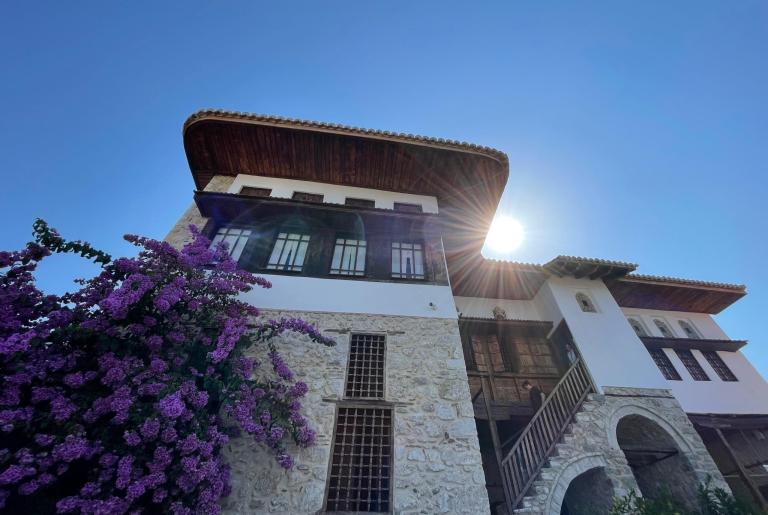
Learn more.
Employment and Skills Development
Albania’s NESS 2030 emphasizes the creation of an inclusive labour market while addressing youth unemployment, skills mismatches and an aging workforce. As part of this vision, 2024 marked significant progress in implementing transformative programmes such as the EU4Youth Programme under the Youth Guarantee (YG) flagship initiative. These efforts aimed to reduce the number of NEET youth by creating accessible, youth-friendly education, training and employment services. Key interventions in 2024 included outreach strategy development, fostering of local partnerships, adopting of advanced YG implementation models and launching of a nationwide campaign to connect youth with tailored YG services. While advancements in digitalization and gender pay gap reduction are evident, challenges such as limited decent work opportunities, formal employment for refugees and flexible working arrangements persist. Women and girls continue to face barriers, including high care burdens and restricted access to non-traditional sectors. The strategy prioritizes women’s economic and social rights, emphasizing participation in green and digital economies.
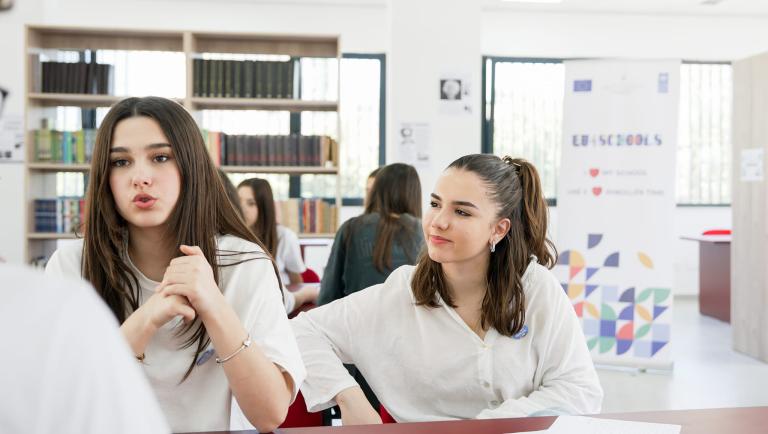
Sustainable and Resilient Economic Growth
Albania’s transition to a green and blue economy is making strides toward sustainability. Progress is being made in renewable energy, waste management, and digital transformation in the country. However, along with the challenges of growth rates and ensuring sustainability, enforcement gaps, underfunding, and climate-related impacts remain. Agriculture is constrained by fragmented land ownership and, together with fisheries, impacted by aging labour and limited access to technology and markets. Meanwhile, rural depopulation and inadequate infrastructure are hindering progress. Nevertheless, Albania is aligning with European standards and orientating itself to the EU market.

The UN’s collaborative efforts focus on addressing systemic gaps in agriculture, fisheries, and cultural tourism while fostering resilient economic practices. By driving green economy and promoting climate-smart solutions, these initiatives aim to transform Albania’s socio-economic landscape, enhancing its alignment with the Sustainable Development Goals and accelerating sustainable economic transformation.
Innovation
Albania has achieved significant progress in its digital transformation journey, with 95 per cent of public services now online, ranking it 8th in Europe for digitalization (as of 2022). Widespread Internet access has surpassed EU averages, illustrating the country’s commitment to aligning its digital agenda with the SDGs. However, challenges remain: rural areas experience connectivity gaps, there is a shortage of digital skills, generally and especially among disadvantaged groups, while a persistent digital gender divide limits women’s participation in ICT. Addressing these disparities and fostering a people-centric approach to digital transformation is crucial for ensuring equitable access to the benefits of technology.
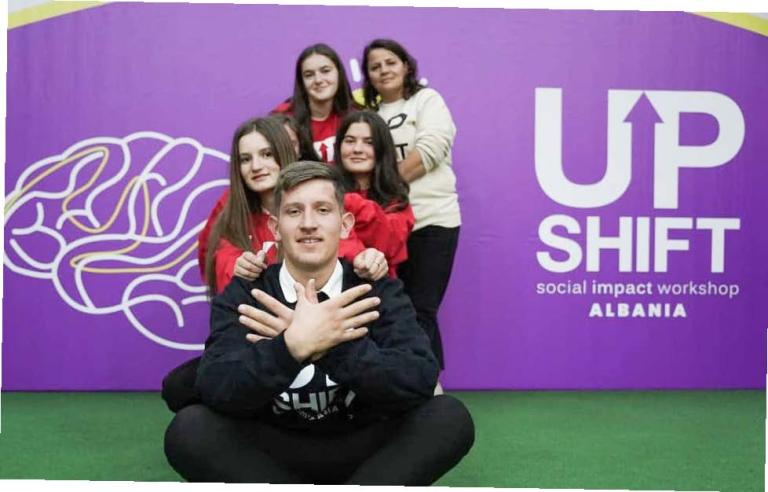
To bridge these gaps, the UN supported transformative digital initiatives aimed at fostering innovation, building digital skills and enhancing digital infrastructure. A landmark achievement was the launch of a national employment platform targeting youth. This platform, along with a professional network, connected nearly 400,000 individuals to employment opportunities, facilitated by hackathons and targeted skill-building programmes. Additionally, akademi.al expanded its reach to more than 534,800 students, offering 29,773 video lessons while laying the groundwork for AI-powered courses designed to revolutionize learning experiences.
Climate and Ecosystem Resources
Albania has demonstrated significant progress in addressing climate action, biodiversity conservation, energy transition and equitable resource access, all of which align with its broader sustainability goals. The country has committed to reducing greenhouse gas emissions by 20.9 per cent by 2030 and achieving climate neutrality by 2050, as outlined in its National Adaptation Plan and renewable energy strategies. Conservation milestones include the establishment of the Vjosa River as a National Park and the expansion of marine protected areas, reinforcing Albania’s dedication to preserving biodiversity and enhancing resilience.
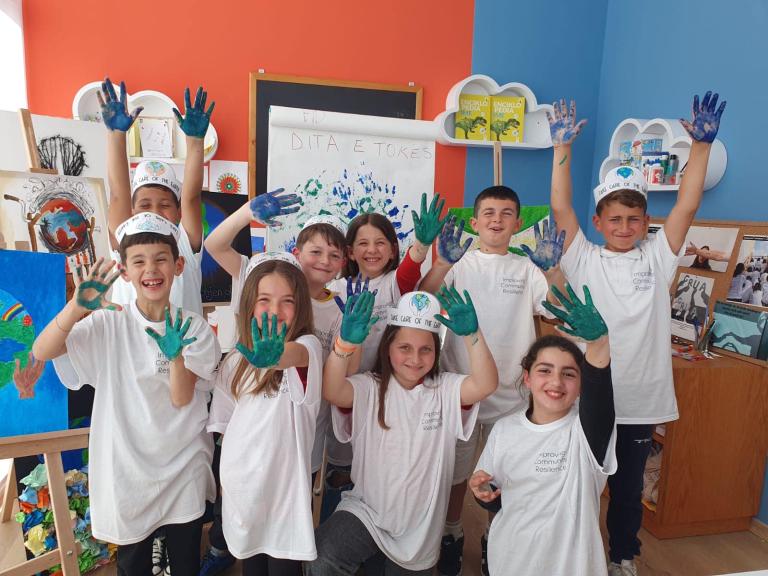
While hydropower remains Albania’s dominant energy source, efforts to diversify into wind and solar energy are under way to address both legacy coal mining impacts and future energy needs. Access to water and sanitation has also been prioritized, ensuring compliance with EU directives while addressing disparities in affordability and access, particularly for vulnerable populations. These multi-faceted efforts, supported by international collaboration and funding, exemplify Albania’s commitment to an inclusive and green transition.
Disaster Risk Reduction
Albania has embraced a proactive approach to disaster risk reduction (DRR), aligning its strategies with the Sendai Framework and prioritizing resilience and preparedness. In a landmark move, the country approved its first National DRR Strategy and Action Plan, which sets a comprehensive framework for disaster preparedness and response. Efforts to align with EU directives and regional initiatives are ongoing, reflecting Albania’s commitment to fostering regional cooperation in disaster management.
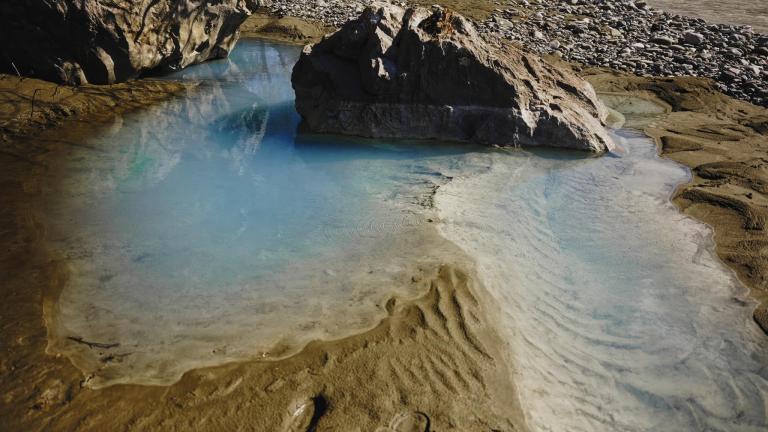
Ten DRMs, protocols of disaster preparedness, mitigation, response, recovery, and prevention have been established for the Albanian cultural heritage framework. Capacity building workshop for disaster risk organized for 50+ site managers, caretakers and other stakeholders.
Sustainable Cities
More people in Albania now live in urban areas than ever before (65%, 2023 census, compared to 53% in 2011), the rapid pace of urbanization, particularly in Durres and Tirana, combined with growing tourism and infrastructure development, poses significant challenges with traffic congestion, poor air quality, municipal waste management, affordable housing and urban planning. To address these issues that impact quality of life, Albania is implementing comprehensive reforms aimed at aligning with EU standards with an emphasis on affordable housing, urban regeneration, land administration transparency and environmental sustainability to drive equitable and sustainable urban growth.
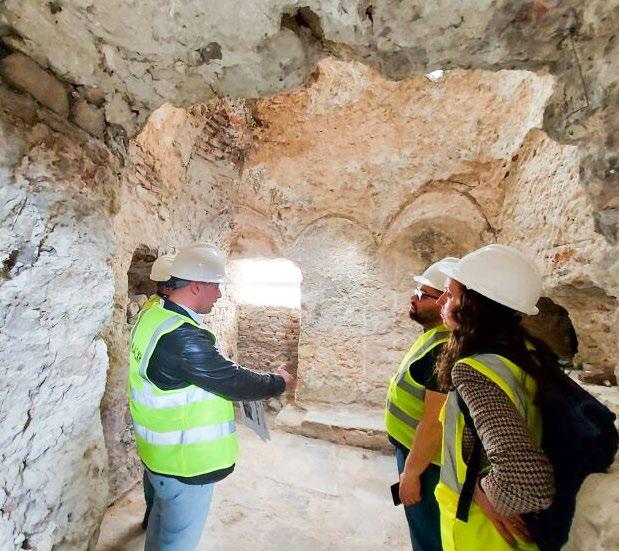
In 2024, the partnership between Albania and the UN continued to deliver impactful results through the Child-Friendly Municipality (CFM) initiative. Diber Municipal Council approved its Child-Friendly Municipality Action Plan for 2024–2026, while the CFM Cross-Sectoral Steering Committee maintained oversight of the Korca Municipality Child-Friendly Action Plan for 2023–2025. These action plans have created robust frameworks for advancing child rights and integrating child-friendly policies into local governance structures.

